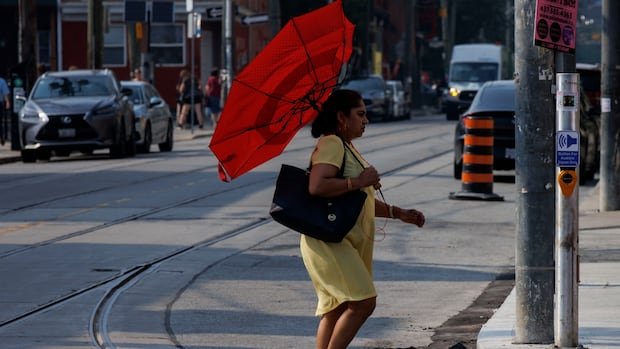This summer felt exceptionally hot for many Canadians, attributed to the impact of climate change. A recent analysis by Climate Central revealed that, on average, Canadians experienced 13 additional days of “risky heat” from June to August due to climate change. These “risky heat” days are defined as days when the temperature exceeds 90% of local temperatures recorded between 1991 and 2020.
Globally, the report highlighted that over 955 million people faced 30 or more extra days of “risky heat” as a result of climate change. The threshold for “risky heat” varies between regions with different summer climates, such as Vancouver and Windsor, Ontario, where vulnerable populations like older adults are most affected by health issues during extreme heat.
Tragic heat-related incidents occurred this summer in Canada and Europe, with a study estimating that a European heatwave in June and July led to the deaths of 1,500 individuals. Additionally, heatwaves can have indirect consequences, like the smoke from wildfires that pollutes the air and contributes to premature deaths.
This year marked Canada’s second-worst wildfire season on record, with a study indicating that Canadian wildfire smoke caused approximately 82,000 premature deaths globally in 2023. Despite a relatively modest increase of around 1.4 degrees Celsius in average global temperatures since preindustrial times, climate change has significantly amplified the occurrence of “risky heat” days worldwide.
A rapid analysis by Environment Canada found that 11 out of 12 heatwaves in Canada this summer, particularly in the Western provinces and Quebec, were twice as likely to happen due to climate change. Notably, the likelihood of a heatwave similar to the one in Atlantic Canada from August 7 to 14 increased tenfold as a result of climate change.
Experts emphasize that climate change is redefining daily weather patterns in Canada, with extreme heat becoming more prevalent. They stress the urgency of addressing climate change impacts and recommend proactive measures like increasing access to air conditioning, implementing policies for outdoor workers during heatwaves, and providing community support for those at risk due to extreme heat.
As climate models project a significant temperature increase of 1.8 to 3.2 degrees Celsius across Canada within the next two decades, experts urge immediate action to mitigate the effects of climate change. They warn that delaying efforts to reduce emissions will lead to severe consequences for communities, ecosystems, and economies globally.

